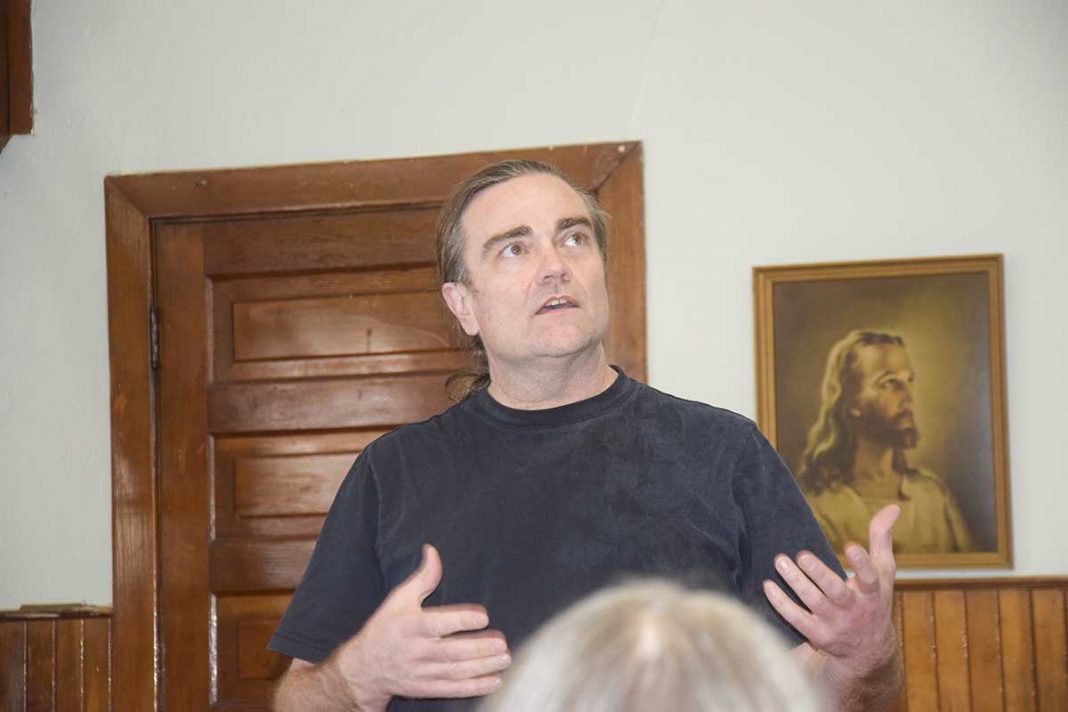LITTLE CURRENT – The Manitoulin-West Sudbury Dairy Producers annual meeting tends to be a font of knowledge from which dairy operators can draw upon to improve their operations. The meeting is also an opportunity for the Dairy Farmers of Ontario (DFO) to canvas their members on how they feel about what is happening and the policies governing their industry. This year, the meeting also hosted a presentation by Guelph University doctoral student Jeffery Reichheld who is conducting a study on biodiversity on dairy farms jointly funded by the DFO and Ducks Unlimited.
“There is a lot of awareness of issues in the environment that are not being taken up,” noted Mr. Reichheld. “The DFO was very very interested in being involved in the study.”
Mr. Reichheld lives on a farm himself and is very aware of the way he interacts with the environment on his own farm. “But I have been watching my community turning from rural to urban,” he said, noting that piece-by-piece the rural landscape in his region is being gobbled up by urban residences.”
That may be an inevitable progression, but it is important that “we take responsibility” for how that unfolds.
There are many environmental services and programs out there to assist in land stewardship, but the uptake has not been great.
“Why are these programs not being engaged with?” he asked. That is one of the questions that his study is looking into. There is one thing that he is now pretty certain is not at the heart of the issue. “Of all the farms I have talked to, not one has talked about money. They are not interested in money, not in it for the money.”
The major issues relate more to a landowner’s “ability to decide what is going on at your farm.”
A common response has been “I have been doing this for years, I know how to raise my cows.”
The common perception is that environmental programs run by “the government” inevitably devolve into more rules and regulations that are not compatible or productive and wind up handcuffing the farmer and dictating to them how and what they must do with their property.
Another issue is that a lot of respondents “don’t see the need for it.”
“Two weeks ago I was talking to a farmer who has spent 40 years on his land and he has seen an increase in the wildlife,” said Mr. Reichheld. “That to him says that this is not important.”
One of the hoped-for outcomes of his study will be the compilation of a list of programs that are available to assist farmers on the farm in Canada and lead to the creation of programs that assist without involving a heavy hand.
“There is potential, my goal is to get it to you,” he said.
“My research focuses on rural identity and what rural living is perceived to offer,” notes the doctoral student. “It will contribute to stronger communities by strengthening the planning process with information about real expectations and desires about those communities and their inhabitants.”
Mr. Reichheld can be contacted for input and discussion on his program by email at jreichhe@uoguelph.ca.




